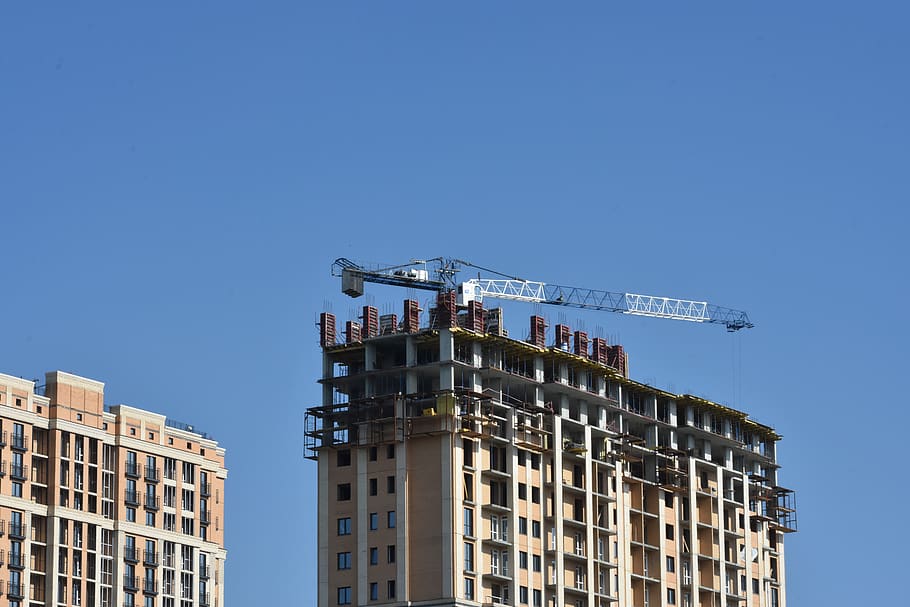What Evergrande is, why it matters and what the Chinese authorities will do

At the origins of the Evergrande case, what happens now? The analysis by Althea Spinozzi, senior fixed income strategist for BGSaxo
WHAT IS EVERGRANDE AND WHY IS IT IMPORTANT?
Evergrande is China's second largest construction contractor, which has rapidly converted from "the world's most valuable real estate company" in 2018 to "the world's most indebted company" recently. To fuel growth during the Chinese real estate rally, the company significantly increased its financial leverage. Little did he know he would face the Covid-19 pandemic and a long-term slowdown in China's housing market, causing the company's fundamentals to deteriorate rapidly. This year, a tightening on debt has led to supplier payment defaults, putting the company at risk of default.
The Chinese market has to measure itself with a fact: Evergrande is a benchmark for the real estate sector with over a thousand projects across the country and total liabilities of over $ 300 billion. A default poses funding problems for Chinese real estate companies and the Chinese banking sector, which has inevitably increased exposure to the real estate giant over the past decade. As indicated by Citigroup, Chinese construction contractors will have trouble refinancing debt in the onshore market due to low demand. Refinancing in the offshore market would also be impractical due to the recent rise in funding costs for Chinese high-yielding USD companies. According to Bloomberg Barclays indices, yields jumped from around 8% in May to 13.70%, the highest level since March 2020 when the Covid-19 pandemic was hitting the market.
The housing market will no doubt go through a period of adjustment as the Evergrande crash could suppress property values. However, we don't expect the government to tolerate a full blown slump as more than three-quarters of household wealth in China is limited in the housing market. Banks will also be vulnerable if Evergrande defaults. They would see their balance sheets deteriorate due to an increase in non-performing loans.
WHAT TO KNOW ABOUT EVERGRANDE BONDS?
Can this paragraph be updated or is it better to delete it altogether? Yes, to keep
Evergrande's onshore bond trading was suspended recently.
A suspension of trading served to inform all investors of the company's downgrade to A from AA, which for China Chengxin International is the lowest investment rating. When a company is rated below AA, the bonds must be traded via the bid-ask and block platform rather than the auction. It is a move that prevents small investors from making speculative investments. Things are different for offshore US dollar bonds, which trade around 25 cents on the dollar. The first bond to mature is the Evergrande 8.25% March 2022 (XS1580431143). Although the company has no bonds maturing this year, the company was expected to make interest payments this week of $ 83.5 million for offshore bonds and $ 36 million for onshore bonds. Hopes for payment have now vanished as Chinese authorities have told lenders not to expect interest payments next week. In addition, the company failed to pay interest on corporate loans on Monday.
THE POSSIBLE SCENARIOS
1. Renovation. This would be the best option for investors, although analysts expect US dollar debt to undergo a haircut of around 70%.
2. Liquidation. This would be a total nightmare. It would take a long time to liquidate all assets and equity investors would likely receive nothing.
WHAT CAN WE EXPECT FROM THE CHINESE AUTHORITIES?
What we shouldn't expect is the Chinese government to save the company. Over the past year, Beijing has allowed several state-owned enterprises to fail, showing a shift in mentality regarding defaults. In the past, it was assumed that the government would initiate a bailout if a state-owned enterprise went bankrupt. This year the government has shown that it only intervenes if the risk of contagion is identified, such as the one we saw this year with Huarong Asset Management. Huarong's default had the potential to rock the entire economy; that's why a deal was made with Critic Group and other state investors to inject $ 7.7 billion into the company.
In the case of Evergrande, it does not appear that the government is willing to intervene. First, Beijing wants to ensure sustainable growth in the real estate sector by eliminating over-indebted companies. Second, a $ 300 billion bailout would only transfer the debt from Evergrande to the government, producing volatility in the Chinese government bond market. The government can try to make the default as painless as possible by encouraging debt extensions and pushing credit boards, but a bailout doesn't seem likely.
This is a machine translation from Italian language of a post published on Start Magazine at the URL https://www.startmag.it/economia/cose-evergrande-perche-e-importante-e-cosa-faranno-le-autorita-cinesi/ on Sun, 26 Sep 2021 05:02:52 +0000.
